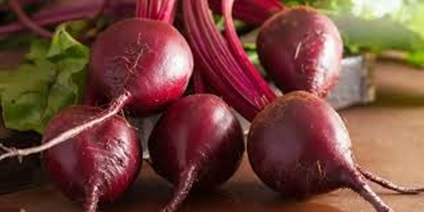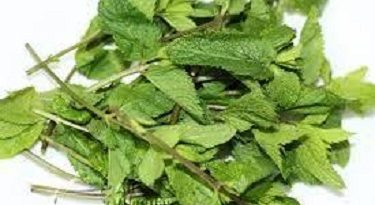Beet: A Nutritional and Medicinal Powerhouse of Beetroot
Beet: A Nutritional and Medicinal Powerhouse of Beetroot. Please watch this video for a better understanding
Beetroot, or beet, is the vibrant, nutrient-rich taproot of the Beta vulgaris plant.

A member of the Amaranthaceae family, it is cultivated globally for its culinary versatility and medicinal benefits.
Known for its deep red or purple hue, beetroot also comes in less common varieties, such as golden and striped beets.
This root vegetable has been cherished for centuries, not just for its flavor but also for its significant contribution to health and wellness.
Let’s delve into its characteristics, benefits, and why it deserves a place in your daily diet.
Beet: A Superfood Rooted in History
Beetroot has been a staple in human diets since ancient times, valued for its flavor, versatility, and health-promoting properties.
Today, it continues to be a sought-after superfood, celebrated for its ability to boost health from the inside out.
Incorporating beetroot into your daily routine can significantly improve your well-being, from heart health and digestion to athletic performance and skin vitality.
Whether you’re looking for a nutrient-dense food or a vibrant ingredient to elevate your recipes, beetroot is an excellent choice.
By making beetroot a regular part of your diet, you take a simple yet powerful step towards better health and wellness.
Key Characteristics of Beetroot
- Nutritional Powerhouse
Beetroot is a rich source of essential nutrients, offering vitamins like vitamin C and minerals such as potassium, iron, and manganese. Its high dietary fiber content supports digestion, while powerful antioxidants like betalains enhance its health-promoting properties. - Culinary Uses
A highly versatile ingredient, beetroot can be enjoyed raw, cooked, pickled, or juiced. It is also a natural food coloring agent, adding a vibrant red hue to dishes and beverages. - Medicinal Benefits
Beetroot has long been valued for its role in managing blood pressure, improving athletic performance, and aiding digestion. - Sweet Earthy Flavor
Its unique flavor, a blend of sweetness and earthiness, makes beetroot a perfect addition to both sweet and savory recipes.
Parts of the Beet Plant
- Roots: Commonly used for cooking, juicing, or as a natural dye.
- Leaves (beet greens): Edible and nutrient-dense, these greens can be cooked or used raw, much like spinach.
From root to leaf, every part of the beet plant is packed with nutrition, making it an exceptional addition to a healthy diet.
10 Reasons to Make Beetroot a Daily Habit
Often regarded as a “superfood,” beetroot is a nutritional goldmine offering numerous health benefits. Here are ten compelling reasons to incorporate it into your daily meals:
1. Rich in Essential Nutrients
Beetroot provides a broad spectrum of nutrients, including vitamin C, potassium, folate, manganese, and iron. These are vital for maintaining robust health and energy levels.
2. Improves Heart Health
Beetroot contains nitrates, which convert to nitric oxide in the body. Nitric oxide relaxes blood vessels, promoting better blood flow and reducing blood pressure. This helps lower the risk of heart disease and stroke.
3. Enhances Athletic Performance
Athletes love beetroot for its ability to boost stamina and endurance. By improving oxygen flow to muscles, it supports enhanced performance during physical activity.
4. Supports Brain Health
Beetroot nitrates also benefit the brain by improving blood flow, enhancing cognitive function, and potentially reducing the risk of neurodegenerative diseases like dementia.
5. Promotes Healthy Digestion
Rich in dietary fiber, beetroot aids in digestion, prevents constipation and supports a balanced gut microbiome.
6. Boosts Immunity
Antioxidants like betalains and vitamin C in beetroot strengthen the immune system and combat inflammation, keeping illnesses at bay.
7. Detoxifies the Body
Beetroot supports liver health by aiding in the elimination of toxins. It also helps prevent fatty liver disease, ensuring optimal detoxification.
8. Supports Healthy Skin
Beetroot’s antioxidants and vitamins promote radiant skin by neutralizing free radicals, reducing acne, and supporting overall skin health.
9. Aids in Weight Management
Low in calories but high in fiber, beetroot is a satiating food that helps control appetite, making it a valuable ally in weight management.
10. Reduces Inflammation
Betalains in beetroot exhibit potent anti-inflammatory properties, helping reduce the risk of chronic conditions like arthritis and other inflammatory diseases.
Incorporating Beetroot into Your Diet
Beetroot’s versatility in the kitchen is unmatched. Whether eaten raw, roasted, juiced, or blended into smoothies, it is easy to enjoy its benefits in various forms.
Here are some ideas to include beetroot in your meals:
- Raw: Grate beetroot into salads for added crunch and color.
- Roasted: Toss with olive oil, salt, and spices, then roast for a caramelized, earthy flavor.
- Juiced: Blend beetroot with oranges, carrots, or ginger for a refreshing, nutrient-packed drink.
- Smoothies: Add a small beetroot to your favorite smoothie recipe for a natural sweetness and vibrant color.
- Soups: Use beetroot as the star ingredient in hearty soups, like classic borscht.
- Pickled: Pickle thin slices for a tangy side dish or sandwich topping.
Quick Tips for Daily Consumption
- Include a small serving of beetroot in your meals to reap its numerous health benefits.
- Pair beetroot with citrus fruits to enhance iron absorption.
- Experiment with different varieties, such as golden or striped beets, for diverse flavors and presentations.


